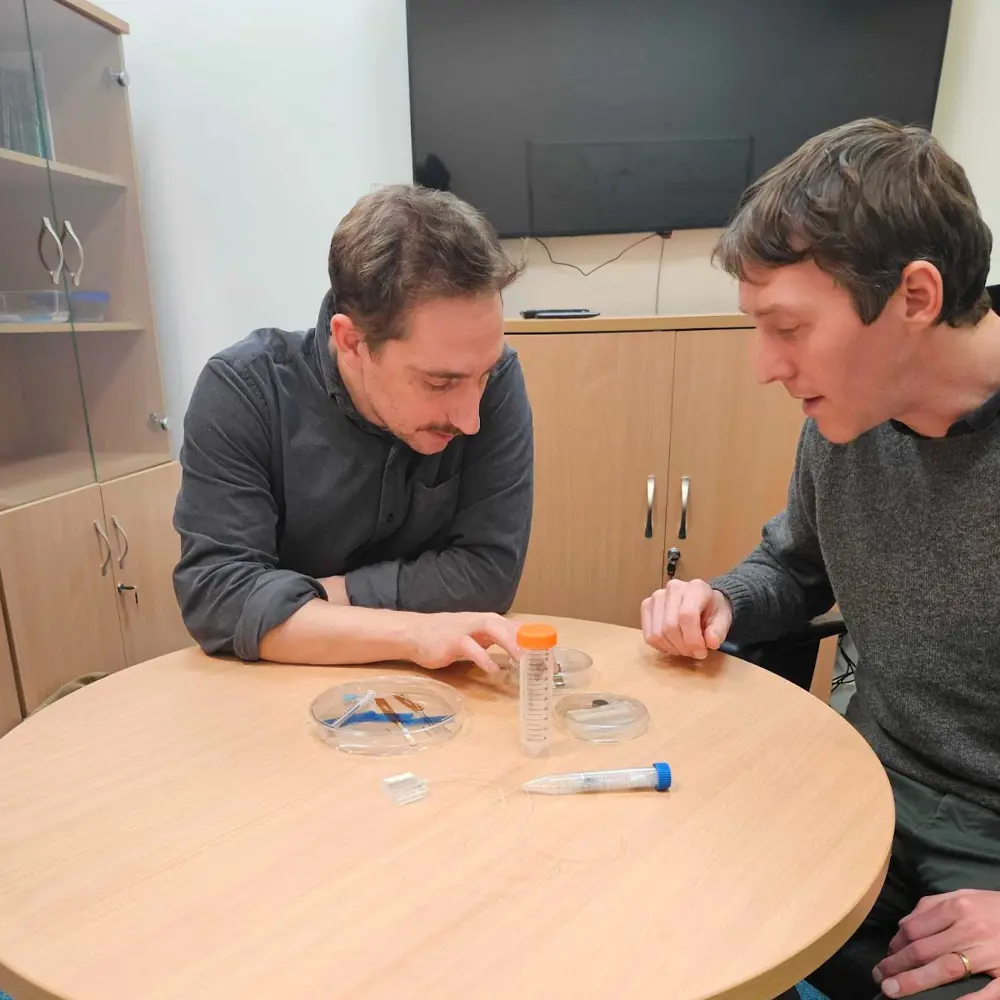What if we could solve the mysteries of neurological disorders and mental health by interfacing with the brain in new ways?
Defined by our Programme Directors (PDs), opportunity spaces are areas we believe are likely to yield breakthroughs.
In Scalable Neural Interfaces, we are exploring how to advance highly targeted minimally-invasive neurotechnologies to understand and repair the brain.
Beliefs
The core beliefs that underpin this opportunity space:
Targeted interaction with the human brain can improve the human condition across an incredibly wide range of disease states and cognitive domains → we need to dramatically and safely increase the throughput (no. procedures per day/£) at which these technologies can be deployed to understand their full potential and deliver them at scale.
Current paradigms for interfacing with the human brain trade off precision for invasiveness of the procedure → there’s no fundamental reason we can’t build technologies that are both highly targeted and minimally invasive.
To fully understand and treat disorders of the brain, we’ll need neural technologies that simultaneously offer chemical, temporal, and spatial specificity → this is achievable only by connecting the frontiers of engineered hardware with the frontiers of engineered biology.
Programmes
To build a programme within an opportunity space, our Programme Directors direct the review, selection, and funding of a portfolio of projects.
While the first programme in this opportunity space, Precision Neurotechnologies, is focused on the precise modulation of neural circuits, we're expanding this opportunity space and have launched a second programme, Massively Scalable Neurotechnologies, centred on the challenges of scaling and addressing bottlenecks around accessibility. Learn more about these below.

Precision Neurotechnologies
Many neurological and neuropsychiatric disorders are neural circuit-level disorders, or problems with the ‘wiring’ of the brain. Current technologies lack the precision to treat this and most are highly invasive. Backed by £69m, this programme seeks to develop next-generation neurotechnologies that operate at the circuit level, across distributed brain regions and with cell type specificity.
Massively Scalable Neurotechnologies
Neurological and neuropsychiatric disorders are the leading cause of global disability, yet today’s most advanced treatments rely on complex surgical procedures. This limits access to only the most severe cases and prevents early intervention for millions. Backed by £50m, this programme is seeking radically new ways to deliver responsive neurotechnologies to the brain without brain surgery.
Opportunity seeds
Outside the scope of programmes, opportunity seeds support ambitious research aligned to our opportunity spaces with budgets of up to £500k.
We're funding 8 seeds to advance the field of scalable neural interfaces by exploring novel biological materials and pioneering new methods for interfacing with the nervous system.
UK National Partnership for Neurotechnology
Luke Bashford, Newcastle University
A Silence Switch for Cancer: Targeting Neural-tumour Synapses with Neuromodulation
Jake Stroud, CoherenceNeuro
Adapting Non-Pathogenic Fungal Networks Toward Next-Generation Neural Interfaces
Thomas Paterson, University of Sheffield
Oligodendronics: Engineering Biology for Scalable Neural Interfaces
Christopher Chapman, Queen Mary University of London
Non-Invasive Skilled Movement BCI Using Multimodal GPT Models
Katja Kornysheva, University of Birmingham
MAGNIS: Magnetically Guided Neural Interface System
Pietro Valdastri, University of Leeds
Scalable Neural Interfaces for Systemic Disorders via Gut-Brain Pathway Modulation
Guillaume de Lartigue, Monell Chemical Senses Center
Craniomics: Mapping the Neuro-Bone Interface in Neurodegeneration
Jake P. Taylor-King, Relation
This opportunity space is part of our rolling seed call experiment – see what's in scope for opportunity seeds in this space by reading the original call for proposals and apply at the link below.
Sign up for updates
Stay up-to-date on our opportunity spaces and programmes, be the first to know about our funding calls and get the latest news from ARIA.


